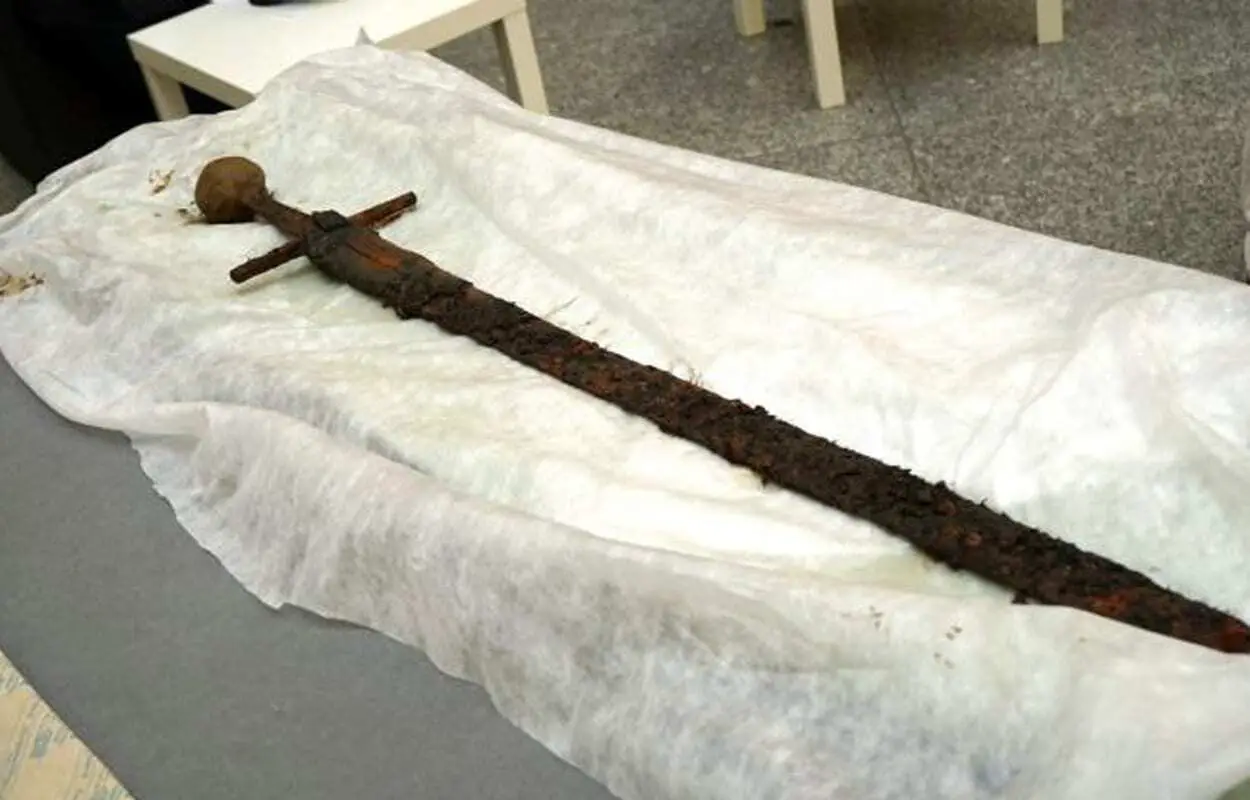An almost complete medieval sword has been recovered from the Oder River in Poland.
The sword was discovered during dredging works on the Świnoujście-Szczecin fairway in the Western Oder at Dębina Island, and is almost completely preserved with a fragment of leather and a wooden scabbard.
The dredging works are part of a project to widen the Świnoujście-Szczecin fairway along a stretch of 62km and rebuild the riverbanks to prevent erosion.
Dr Anna Bogumiła Kowalska from the Archaeology Department of the National Museum in Szczecin told local journalists that the sword was a unique find due to the high level of preservation and that it was rare to discover an almost complete sword with remnants of its scabbard.
The sword is 108 cm long with only a broken tip and a small fragment of an engraving. The surviving handle with the pommel, and a crossguard is still in a fragment of leather and a wooden scabbard that has triangular insets.
According to a preliminary inspection, the sword dates from between AD 1170 to 1330 and has been sent to the National Museum to conduct a non-invasive study to determine whether the sword was lost during conflict or could be a military deposit.
Kowalska said: “From deep prehistory, military deposits had a votive character – perhaps this sword is related to such a story. If it really turned out that it was a deposit, it would be the most eastern deposit we know today”.
Header Image Credit : M. Bielecki





